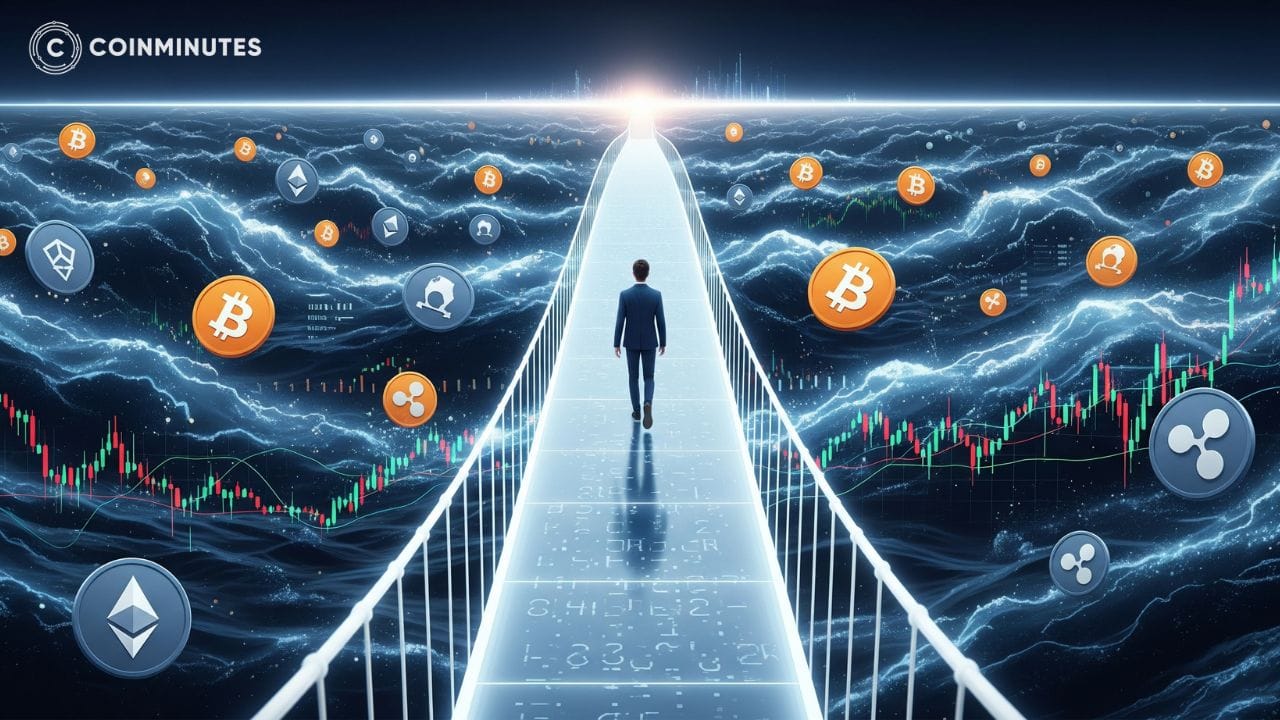

Coinminutes Cryptocurrency: Insights from Leading Experts

| ven 10 | sam 11 | dim 12 | lun 13 | mar 14 | mer 15 | jeu 16 |
|---|
Dernier post

Crypto Moves by the Minute, Not by the Hour: CoinMinutes' Founding Philosophy Explained
Crypto doesn't sleep. Never has. But for some reason, most crypto news operates like we're covering the stock market - 9 to 5 with morning editorial meetings and publishing schedules.
How We Built CoinMinutes (Or: Sleep Is Overrated)
After the Luna disaster, I couldn't stop thinking about the information gap. Kept ranting about it to anyone who would listen.
Me and my two friends built the first CoinMinutes prototype in 17 sleepless days. Our first system was a TOTAL DISASTER - crashed every 6 hours and missed half the major wallet movements. The Discord notification system was basically me manually copying transaction hashes at 3AM while chugging energy drinks.
But you know what? People still found value in our janky setup because even our broken alerts were faster than waiting for "official news." I got obsessed with improving the technical validation - probably unhealthily so.
I still review critical smart contracts personally - partly because I don't trust anyone else to catch those weird edge cases in custom ERC20 implementations, partly because I'm too cheap to hire enough specialists.
Anyway, where was I? Right - our verification process.
Our Three-Layer Process (That I've Rewritten Like 47 Times)
Initial identification
This is where we catch something happening. Could be from our monitoring systems (which now track over 1.7 million wallets and smart contracts), community reports (more on that later), or just weird market movements.
Technical validation
THIS IS THE PART THAT MATTERS MORE THAN ANYTHING. Sorry for shouting, but after 3 years I'm still amazed how many "crypto analysts" don't do this. Our team actually traces transactions, reviews contract code, and validates that what's happening matches what's being claimed. We've had to build specialized tools for different chains because Solana validation is nothing like Ethereum validation is nothing like Cosmos validation.
The number of times we've seen alarming headlines about "hacks" that turned out to be normal protocol operations is staggering. Conversely, we've caught actual exploits that looked like routine operations to untrained eyes.
Join our community on https://spoutible.com/coinminutes if this interests you.
Context analysis
Once we know WHAT is happening and have confirmed it technically, we figure out what it MEANS. This is comparing to historical patterns, understanding market implications, etc.
Oh, and we test this system CONSTANTLY. Every major market event gets a post-mortem where we analyze what we caught, what we missed, and how we can improve. I still have nightmares about the Curve oracle incident we missed for 23 minutes because our Arbitrum scanner was down.
The Community Intelligence Network (My Favorite Accident)
So here's something I never expected when we started this. As we grew, our community started catching things before our systems did. And not just obvious stuff - sophisticated pattern recognition that surprised even our technical team.
Instead of seeing this as competition to our monitoring tools, we built an entire framework to capture and verify community insights. Our groups turned into this amazing collaborative intelligence network where people share observations, our team verifies them technically, and then we publish the combined analysis.
"It's like having thousands of additional eyes scanning the blockchain," as Sam puts it. Sam's our lead analyst - brilliant but also hasn't slept more than 4 hours straight since 2017, pretty sure he's more caffeine than human at this point. "When someone in Tokyo notices something unusual at 3AM New York time, that creates incredible coverage advantages."
The community aspect is honestly my favorite part of what we've built. Everyone benefits from collective vigilance. Had to implement some strict verification requirements though.
https://ch.sooplive.co.kr/coinminutes is also one of the communities we’re in the process of building. (Just saying, in case you wanna see more of us.)
Why Technical Validation Matters More Than Anything Else
Gonna go deep on this for a minute because it's the heart of everything we do.
I've worked in both traditional finance and crypto development. The gap between crypto reporting and on-chain reality makes me want to throw my laptop sometimes.
That's why we've gone overboard with validation. Bitcoin's relatively straightforward, though Lightning Network monitoring has weird edge cases we're still figuring out. Actually lost a small amount of funds testing Lightning routes last month.
Our DeFi coverage is decent but super uneven - we're solid on lending protocols and decent on DEXs, but derivatives platforms are still a blind spot.
This whole approach is exhausting and probably not sustainable financially. But the alternative is becoming just another useless crypto news site, so...
Yeah, We're Not Perfect (The Tough Lessons)
Look, I'd be lying if I claimed this approach was flawless. We've made mistakes.
Our verification process sometimes means we publish minutes later than competitors who just repeat unverified claims. When everyone's rushing to be first, those minutes feel like hours. The tension between speed and accuracy defines our daily work.
We also miss stories entirely when we can't validate them to our standards. When sources can't be verified or on-chain evidence isn't conclusive, we choose silence over speculation. That decision costs us traffic but preserves trust.
The real nightmare is trying to keep up with every new L2, chain, and DeFi protocol. We're drowning in complexity. Just last week some new rollup launched that uses a validation mechanism I barely understand. Who's going to become an expert on that? Afterall, we're not a damn research institution.
We nearly went under last year trying to hire specialists for everything. Had to make the brutal choice between covering fewer protocols properly or covering everything badly. Some investors actually walked when we chose the former.
But hey, we're learning from our screwups. That false alarm about the major DEX in March was embarrassing as hell, but it forced us to implement triple-verification for governance actions. Still not perfect - just less terrible than before.
Where This Goes Next (If I Can Get Some Sleep)
This whole industry faces the same fundamental challenge: markets move by the minute, but good analysis takes time. That gap is where opportunity and risk live.
We're working to narrow it further through:
Expanded monitoring across more chains and protocols.
Better community tools. Launching a contribution system next month that helps readers share insights more effectively. Been testing it with power users for weeks - already caught two minor exploits through it.
More specialized coverage. RWAs, cross-chain bridges, and MEV are all getting dedicated teams. Especially excited about the MEV monitoring - the stuff happening there is fascinating and terrifying.
Education that builds self-sufficiency. Teaching readers our validation methods so they can apply them independently.
Our mission hasn't changed: delivering insights when they actually matter. But our vision has expanded to building a community of informed investors who navigate crypto's complexity together.
We’re also on https://groups.google.com/g/coinminutes.

À propos
Launched in 2022, Coin Minutes aims to deliver crypto insights while other news outlets are still processing yesterday's news.
We skip the hype cycle. Instead, we dig into GitHub activity and on-chain metrics - the boring stuff that actually protects your portfolio when markets spiral.